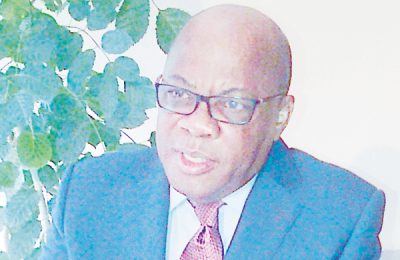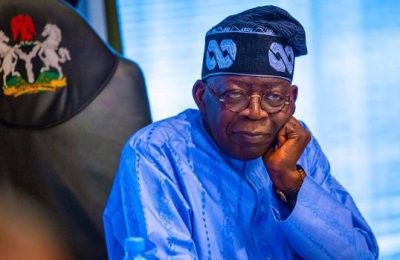The Chairman of the Federal Civil Services Commission, Professor Tunji Olaopa, has described licensing of either public or private universities without recourse to financial arrangements as nothing but a criminal act.
On Wednesday, Olaopa, a guest speaker at the 16th Convocation ceremony of Lead City University, Ibadan, said most institutions have deviated from their primary objectives as they have been turned into money-making ventures.
The convocation ceremony witnessed the conferment of Doctorate degrees (Honoris causa) on the Olubadan of Ibadanland, Oba Dr. Lekan Balogun, the former Deputy Governor of Osun state, Erelu Okusoka Obada, and Procurement consultant, Obafemi Oye.

The commercial development, according to him, is adversely affecting not only the standard of education but also the quality of the graduates being turned out on a yearly basis.
He submitted that the regulatory agency has politicized the licensing of public and private universities without recourse to financial arrangements.
The Chairman added that this development, if unchecked, portends danger for the education sector.

He submitted, “The enlightened public has the sense that the proliferation of universities, public or private, is unchecked because it has been politicized, as is the usual practice with everything significant in Nigerian life. And this ensures that some of these institutions are not sufficiently standard and functional to meet the needs for which they were established.

Most private universities are established to service the modus operandi of anything private—commercial agenda and profit. To this extent, the Nigerian education landscape is not far from the global education development.
However, licensing so many universities, under the political and politicizing imperative, when the existing ones do not have any firm regulatory oversight or significant funding arrangement is just criminal.
The second submission I’d like to make is with respect to the seemingly intractable issue of education financing in Nigeria. On this policy concern, I have advocated the imperative need for policy creativity, which is still staring us in the face. I had advocated the designing of a financing model for education. Whatever model is adopted must be carefully thought through but will grant concessions for universities to recover their costs.
The government then subsidizes funding and the capacity of students to pay within a funding mix made up of scholarships, grants, and student loans (which is the current FGN policy and makes great sense to me).
On university autonomy, he said it would allow them to develop at their own pace and in response to their immediate environments and context of development. But then, all good policy ideas have the devil in their details.
In granting full autonomy to universities, the critical concerns for equity in the provision of education to the worst-off in the society must not be allowed to fall through the cracks. And this demands that the policy indication must be thought out fully through a concerted stakeholder brainstorming that raises all the questions and scrutinizes all the possible solutions.
He also advised the leadership of the Academic Staff Union of Universities (ASUU) to desist from being partisans in their approach.
“If ASUU and the labor unions will truly transform with justice the fortune of the Nigerian workers, and at that win the battle of revamping the university system in Nigeria, they must recalibrate their tactics, regain their credibility by desisting from partisanship, as the dangerous political gamesmanship that the top labor leadership is locked in is too dangerous and portends danger for the future of the Nigerian workers.
In their separate remarks, the awardees thanked the management of the institution for the honor bestowed on them and promised not to relent in their efforts to reshape the future of the education sector in the country.
The Olubadan of Ibadanland, Oba Dr. Balogun, has instituted an annual award of N100,000 for the best-graduating student in the Department of Environmental Science, Faculty of Basic Science.
Also, Erelu Obada charged the youths not to relent in their efforts to achieve their utmost goal.
“I want to implore the youths to be focused and not to waver in their quest for knowledge.”
READ ALSO FROM NIGERIAN TRIBUNE








